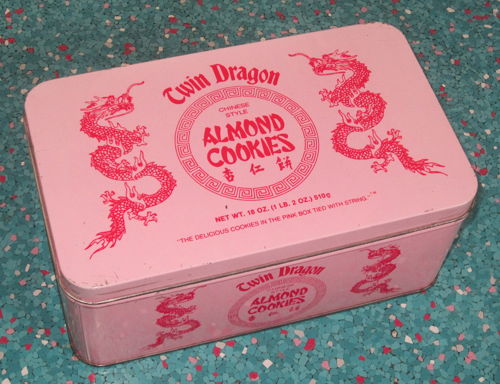
Earth Protect Blog
- Font size: Larger Smaller
- Hits: 1892
- 0 Comments
Could We Survive on Nothing But Cookies?
If you could eat only one kind of food forevermore -- just one kind, all day every day -- what would it be?

For me, it would be cookies.
When you've seen a lot of life and death, you start to wonder how you'd live if you could make the rules. You realize what you would retain and what you would discard, what you would do whenever possible and never do again. You realize what, if you could get away with it, you'd eat.
Cookies: They soothe. They satisfy. They're ready when you want them. (And if not, nothing need be skinned, boned, scrubbed, seeded or disemboweled to make them.) They're soft. Starchy. Sweet. Almost neat and almost dry. This, in a world of drippy crunchy food, is what I want.
And cookies are historic, baked since at least Shakespeare's time in Europe, brought to the early United States as koekjes by the Dutch. Cookies have since diversified into a whole cuisine, ranging from the 1947 Modern Encyclopedia of Cooking's "Cocoa Indians" (2/3 cup raisins, 1 cup flour, 1/4 teaspoon baking powder, 3/8 teaspoon salt, 1/4 cup cocoa, 1/2 cup butter, 1 cup sugar, 2 eggs, 1/2 teaspoon vanilla, 1/4 cup milk; spread batter in pan; bake 25 minutes; slice into "Indians") and "Mandel Kakas" (1/2 cup fine-cut almonds, 2 cups flour, 1 cup butter, 2/3 cup sugar, 1 egg, 1/4 teaspoon almond extract; shape into balls; bake ten minutes) to sturdy flourless creations bordering on energy bars.
I asked dietitian/nutrition therapist Karen Scheuner whether it would be possible to maintain "decent health" for any length of time while eating only cookies.
"First off, how would we define 'decent' health? It's reasonable that one could live off cookies -- chocolate chip, oatmeal -- for a long time," Scheuner says. "Probably several months, or even longer. The body would adjust to any deficiencies by synthesizing what it could from stored nutrients in the liver."
But eventually, "the stores would be depleted, deficiencies would appear in some nutrients -- such as omega 3 and certain amino acids -- which can only be found in foods other than cookies. Deficiencies from inadequate nutrient intake are subtle."
 |
These would include decreased mental/cognitive functioning: foggy thinking, memory problems, fatigue.
"It's also important to note," Scheuner says, "that one would not feel good physically and would tire of eating cookies."
Wait. What?
"It seems obvious, but it's good to point this out nonetheless because people think they would want to eat nothing but cookies, but in reality -- if they are intuitive and connected to their body cues of hunger, fullness and satiety -- their bodies would get 'sick' of eating cookies, as cookies are very sweet and do not satisfy like real, hot, whole foods do."
She does not count a freshly baked you-know-what as real or whole, although it's hot.
"If the cookies were made with ground flaxseeds and/or walnuts, which contain a fair amount of omega-3 essential fats, as well as raisins or other dried fruit, one could live off cookies and have 'decent' health for some time."
But then....
"Long-term health consequences from dietary imbalance often do not show up until years later, and by years, I mean like twenty-plus years when the body starts to really show signs of aging. Then the 'collection agency' will appear and want to 'collect' on unhealthy behaviors from youth. Of course there are a lot of elements to consider in the definition of health, and nutrition is only one part of a complex puzzle that contributes to health and disease."
If you ever undertake the cookies-only diet (recommended by no doctors anywhere), at least the cookie doughs and thaw-and-serve parbaked cookies (including vegan types) made by PastrySmart in California's Silicon Valley are almost 100 percent organic and Certified Humane.
PastrySmart recently became the nation's first Certified Humane bakery because its products are made exclusively with ingredients from an American Humane Certified Producer -- in this case, Clover Stornetta Farms in Petaluma, CA.
"It happened because we're purists," says owner Mark Ainsworth, who began his baking career at the Ritz-Carlton in Pebble Beach, then later supplied baked goods to the Google and Yahoo campuses.
Being a purist gives him a certain advantage.
"When you look at cookies on a supermarket aisle, what you're seeing is a really saturated product line. Everybody and their grandmother is making cookies these days. If you tell the store, 'My product is organic,' they'll say, 'Big deal.' But if it's organic and vegan and humane, that's different.
"And no other company anywhere sells snickerdoodle dough."
http://www.huffingtonpost.com/anneli-rufus/the-allcookies-diet-could_b_945197.html
Comments
-
Please login first in order for you to submit comments













